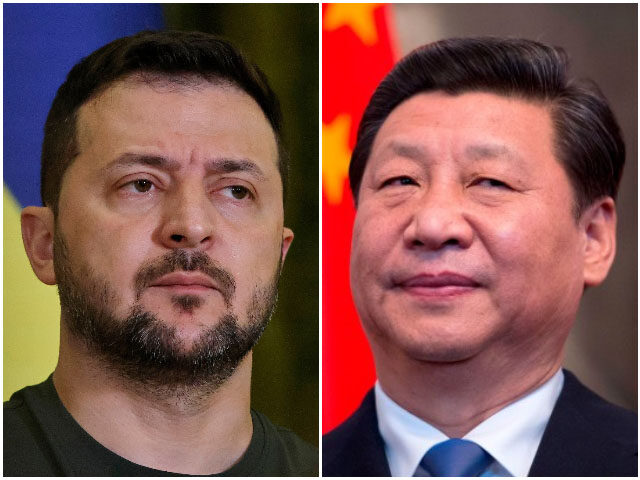The Ukrainian government is reportedly considering an end to its “International Sponsors of War” blacklist, which lists major companies that are passively funding the Russian invasion by continuing to do business in Russia because China and France strongly object to the naming and shaming of their corporations.
Two sources told Reuters on Thursday that Ukraine could scrap the Sponsors of War list and its website within a matter of days.
Ukraine’s Cabinet of Ministers held a meeting on Wednesday at which it decided to remove public access to the International Sponsors of War website, following complaints from foreign embassies that there was no “regulatory framework” controlling the list. The ministers also felt the Sponsors of War list was redundant because the Ukrainian government also maintains a “state register of sanctions” that does have legal force.
Ukraine’s National Agency of Corruption Prevention (NAZK) created the list in the summer of 2022 in an effort to build public pressure against international corporations that have not terminated their business operations in Russia.
Part of the rationale for shaming the companies as “Sponsors of War” is that they are paying taxes to the Russian government, which is spending lavishly on the stalled invasion of Ukraine. Some of the companies also pay for advertising in Russian media, employ local services such as food delivery, and “cooperate with state and local law enforcement agencies of the aggressor country,” as NAZK put it.
Most of the 50 companies currently listed as Sponsors of War are relatively obscure, but there are a few heavyweight corporate entries, including Nestle, PepsiCo, Unilever, and Subway. Fourteen of the listed companies are Chinese, including massive energy companies like Sinopec and tech giants such as the Alibaba Group. China is Russia’s largest remaining international ally after the brutal Ukraine invasion.
NAZK claims there are roughly 1,600 foreign companies doing business in Russia after the invasion but only a tiny fraction of that number has been added to the International Sponsors of War list. The blacklist is purely a public relations operation, with no legal force inside Ukraine.
According to Reuters’ sources, China has been leaning most heavily on Ukraine to discontinue the list. China publicly demanded Ukraine remove all Chinese firms from the list in February, hinting that China’s massive purchases of Ukrainian grain could be at risk if Kyiv did not comply.
“It’s China, but not only China,” one source said, noting that France, Austria, and Hungary are also displeased with Ukraine for adding prominent companies to the list.
Ukraine added French retailers Auchan and Leroy Merlin to the list in February 2023, calling out their senior managers by name for supporting the Russian war effort.
“Since the beginning of the full-scale invasion, the Russian subsidiary of the French Auchan has been paying taxes to the budget of the terrorist country, supplying goods to the Russian military in the occupied Ukrainian territories under the guise of humanitarian aid to civilians, and helping military enlistment offices recruit conscripts,” NAZK charged.
NAZK accused the large Russian subsidiary of Leroy Merlin, a home improvement and gardening retailer, of providing “high revenue” to the Russian government.
Ukraine took action against the French companies after a joint investigation by France’s Le Monde newspaper and the Bellingcat security firm uncovered evidence that Auchan and Leroy Merlin were directly supplying Russian forces on the Ukrainian front.
Austria’s Raiffeisen Bank International was once featured on the International Sponsors of War list, but Ukraine removed it under heavy pressure from the Austrian government in December 2023. Austria made its approval of additional European Union (EU) sanctions against Russia contingent upon Ukraine removing the bank from its blacklist.
A similar situation occurred with Hungary’s OTP Bank in October 2023, although in that case the bank also promised to implement some new restrictions on Russian operations to mollify the Ukrainians.
“The demise of the name-and-shame campaign, if it happens, would be indicative of how Kyiv may have to soften its stance as it becomes harder to maintain global support for its war effort more than two years into the full-scale invasion,” Reuters suggested.

COMMENTS
Please let us know if you're having issues with commenting.